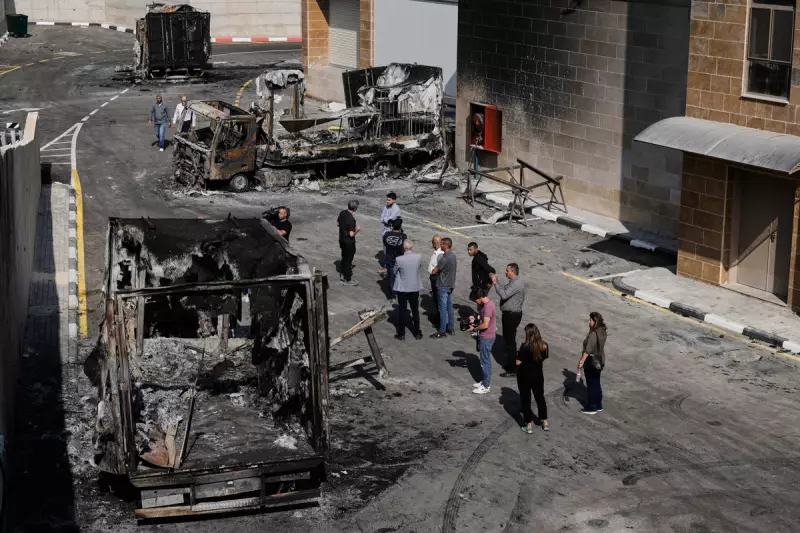
In a brazen act of defiance against their own president's appeals for calm, masked Israeli settlers have set fire to a mosque in the occupied West Bank. The attack, which occurred in the Palestinian town of Deir Istiya, saw a wall and carpeting inside the holy site torched and at least three copies of the Quran deliberately burned.
Graffiti and Condemnation
The assailants left behind graffiti scrawled in Hebrew on the mosque's walls. Messages included 'we will revenge again' and 'keep on condemning', the latter appearing to be a direct taunt aimed at Israeli officials who have spoken out against the recent surge in West Bank violence. This incident came just a day after Israel's President, Isaac Herzog, described a previous attack as "shocking and serious".
Major General Avi Bluth, chief of the military's Central Command, had also denounced the "unacceptable situation" on Wednesday, stating that violent acts by an "anarchist fringe" against civilians and security forces were extremely serious and must be dealt with firmly. His comments followed a separate incident on Tuesday where dozens of masked Israeli settlers attacked the villages of Beit Lid and Deir Sharaf, setting vehicles ablaze and clashing with Israeli soldiers.
A Pattern of Escalating Violence
This attack is not an isolated event. Young settlers have launched hundreds of attacks since the war in Gaza erupted two years ago. The violence has notably intensified in recent weeks, coinciding with the Palestinian olive harvest. In a stark statistic, the United Nations humanitarian office reported that October saw the highest number of recorded settler attacks in the West Bank since it began tracking such data in 2006.
The international community is watching with growing concern. At a press conference, US Secretary of State Marco Rubio voiced apprehension that events in the West Bank could spill over and undermine efforts in Gaza. Meanwhile, Israel's Prime Minister, Benjamin Netanyahu, has remained silent on the recent surge in attacks.
Despite the strong condemnations from President Herzog and the Israeli army’s chief of staff, Eyal Zamir, who vowed the military "will not tolerate the phenomena of a minority of criminals", the presence of Israeli soldiers at the damaged mosque on Thursday underscores the ongoing tension and the challenge of reining in the violence.





